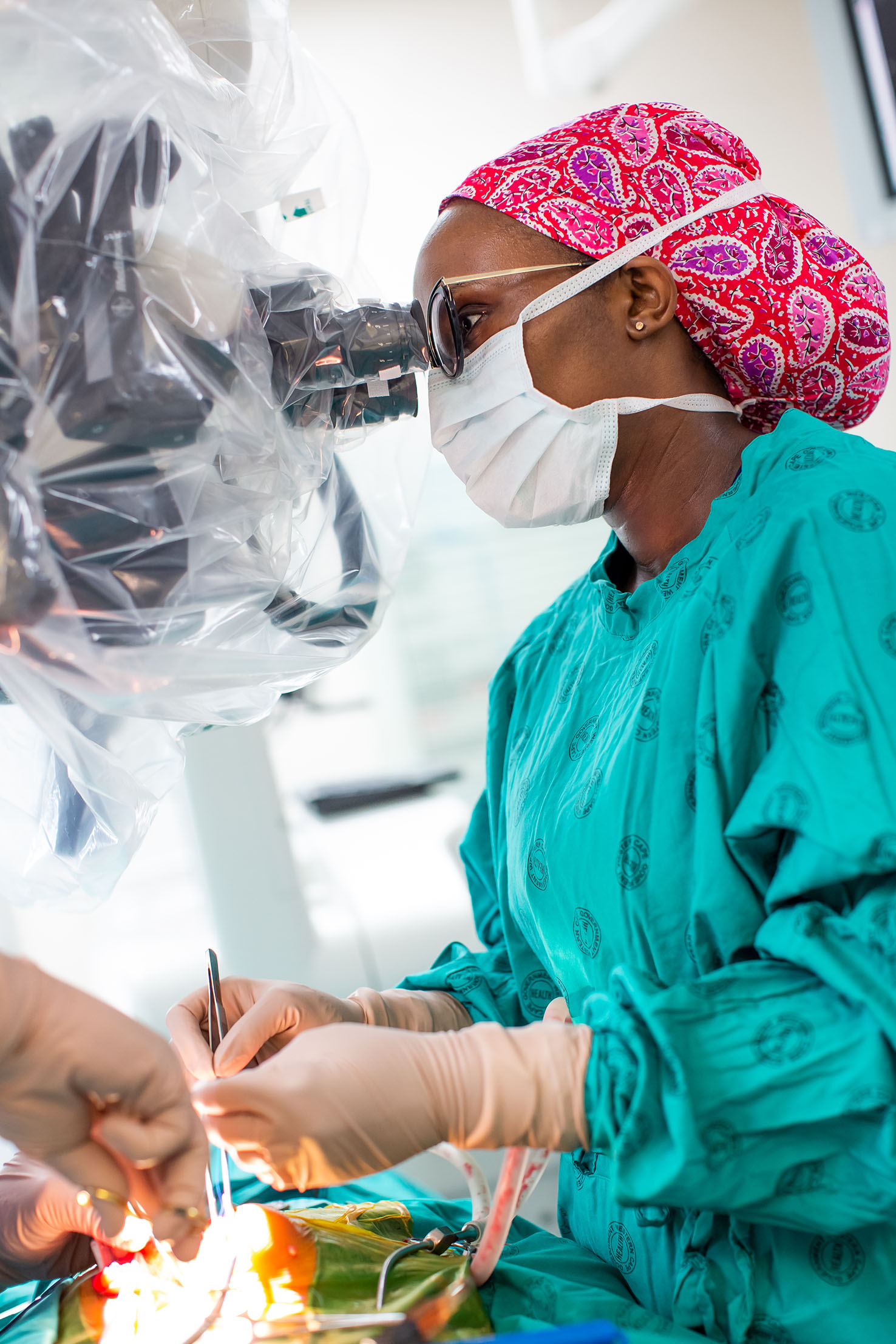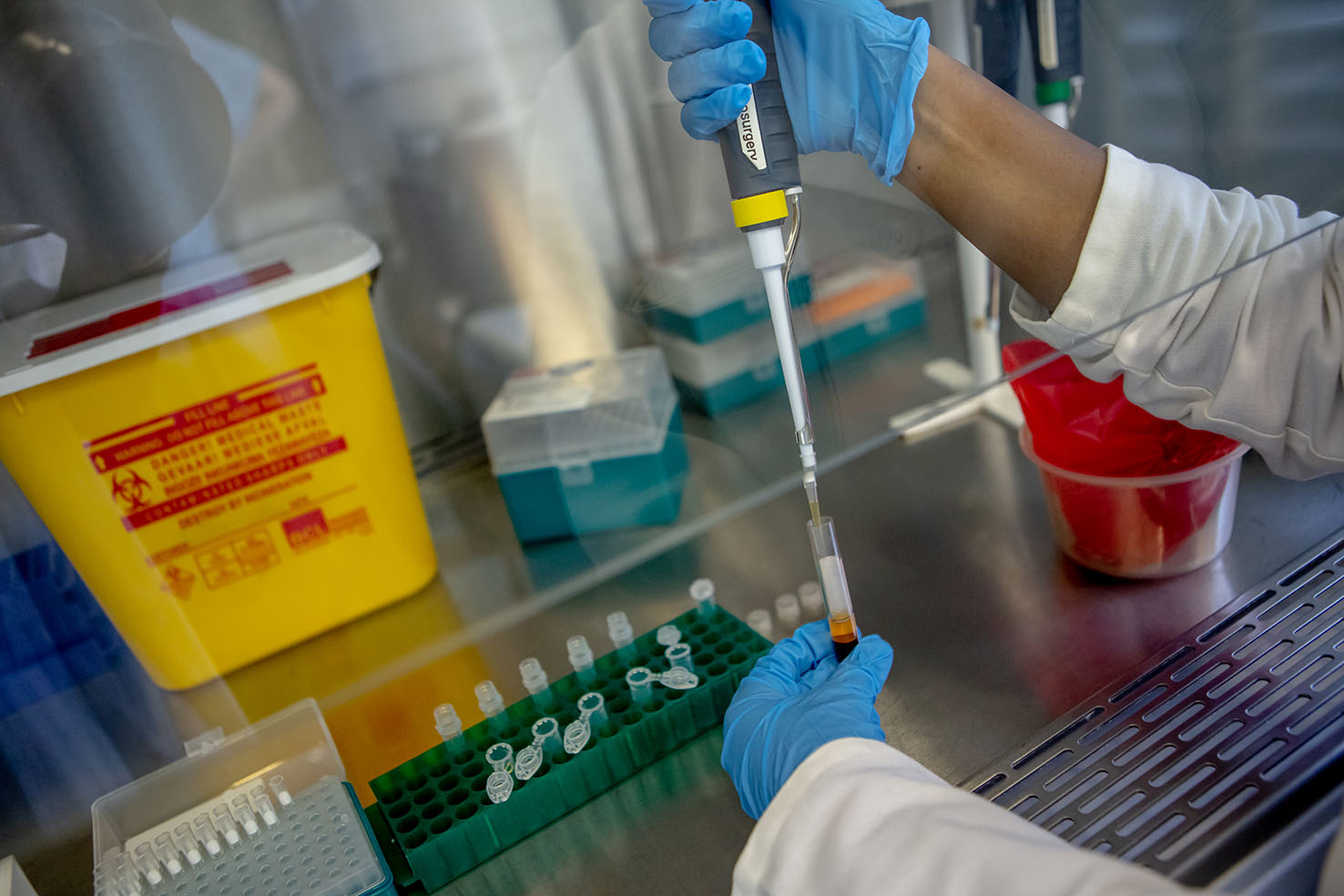
Most fields in medicine and surgery are increasingly moving towards subspecialised practice, which means an even greater focus on specific components of an already-specialised field. This move is influenced by a number of societal and professional factors, including the exponential growth in required knowledge and skills that necessitate extended training, the rapid pace of technological innovations, and evolving definitions of acceptable outcomes.
In accordance with our commitment to training specialists at the highest level of clinical expertise and intellectual rigor, we offer several fellowships in subspecialty training. The duration of these varies according to the unique requirements in the field and the aspirations of the candidate. All programs are led by experts in their respective fields, who have strong international links in training and research.
Please direct general fellowship enquiries to Vuyiwe Bathaka.
Neurocritical care
This is a two-year fellowship administered in collaboration between the Divisions of Neurosurgery and Critical Care. Over two years, prospective candidates are expected to complete rotations between neurosurgical, general surgical and medical intensive care units. Candidates are expected to register for a Master of Philosophy (MPhil) degree in Critical Care and write the Certificate in Critical Care of the Colleges of Neurosurgery of South Africa.
Fellowship administrators: Professor Ivan Joubert and Professor Patrick Semple
Paediatric Neurosurgery, Paediatric Neurocritical Care, Intraoperative Neurophysiology
This 1-2 year fellowship program is offered at the Red Cross Children’s Hospital - the only dedicated paediatric neurosurgery service in South Africa. The program covers all aspects of paediatric neurosurgery, such as neuro-oncology, epilepsy and functional neurosurgery, dysraphism, craniofacial and congenital abnormalities, and hydrocephalus.
In addition, the program covers advanced neurocritical care, which includes microdialysis, continuous EEG, brain oxygenation and CBF, and high frequency data capture.
There is also a training program in intraoperative neurophysiology.
Candidates are expected to complete a MPhil or MSc Neuroscience. The program is strongly connected with the UCT Neuroscience Institute and is supported by neuroscience Masters and PhD students.
Fellowship programs are also offered for neurophysiologists in intraoperative neurophysiology and critical care neurophysiology.
Program administrators: Professor Anthony Figaji and Dr Nico Enslin

Spine Surgery
The neurosurgery spine fellowship is separate to the orthopaedic spine fellowship which is run by the Division of Orthopaedic Surgery. The neurosurgical spine fellowship is run for one year and covers most aspects of adult and pediatric spine surgery, with the exception of adolescent deformity/scoliosis. Fellowship training encompasses clinical management of spine trauma (concurrently with orthopaedic surgery), spine oncology, degenerative spinal deformity and pediatric craniocervical junction disorders.
Program administrator: Dr Andrew Mathole
Vascular-Neurointerventional Surgery
Modern neurosurgical management of cerebrovascular disorders requires a combination of advanced microsurgical skills with high-level skills in endovascular techniques. The exceptional neurovascular service based at Groote Schuur Hospital and UCT Private Academic Hospital ensures world-class fellowship training through an atmosphere of critical enquiry and substantial case volume.
Program administrators: Professors Allan Taylor and David Le Feuvre
Pituitary and Endoscopic Skull Base Surgery
This is a lively and innovative fellowship focusing on endoscopic pituitary and endocrine surgery. This program works in close collaboration with otorhinolaryngology and endocrinology. The fellowship includes training in microsurgical key-hole surgery for sella and supra-sella tumours, particularly craniopharyngiomas and pituitary tumours.
Fellowship administrators: Professor Patrick Semple